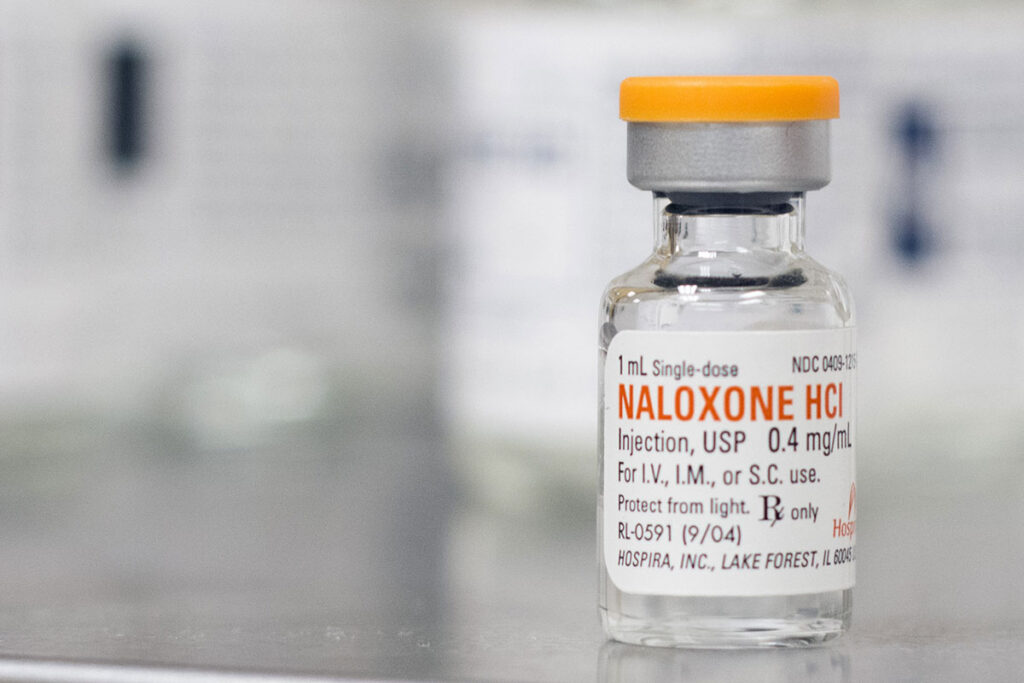We Accept Most Insurance. Please Call to Verify Yours.






![]()







If you or a loved one is struggling with fentanyl, you’re not alone. Today, an estimated 5.6 million Americans, or 2% of the population, have an opioid use disorder. Of those, more and more are using fentanyl – an extremely strong opioid that’s often used as a cheap alternative to prescription pain pills and to street drugs like heroin. Fentanyl has also increasingly been found in even faux prescription drugs like Xanax, which means that you might be addicted to fentanyl even if you’re not aware you’re taking it.
Today, we know more about treating opioid use disorders than ever before. The ideal is a mix of short-term medication assisted treatment and longer-term behavioral health treatment in the form of counseling and behavioral therapy.
To that extent, there are multiple medications on the market intended to treat both fentanyl addiction and overdose. Each is used in different scenarios, meaning you’ll have a different recommendation based on the case, whether you’re staying in a clinic, and whether you’re at risk of overdose. Medications to treat opioids like fentanyl have a controversial reputation because many of them are opioids. However, they are life-saving, highly tested, and very likely to improve outcomes.
Medication Assisted Treatment or Opioid Replacement Treatment is any of several treatments that involve using an opioid to replace the opioid you’re addicted to. In most cases, you’d take something dangerous to use like fentanyl and replace it with a prescription for methadone or buprenorphine. The result is that you don’t have cravings and don’t have to go through withdrawal. This reduces the risk of relapse and overdose while you get the treatment and find the mental stability to stay clean on your own.
MAT programs almost always focus on harm reduction. This means you’ll be on a program of medication to maintain your recovery for 6 months to 2 years. During that time, you’ll continue getting mental health help and counseling. You’ll also likely have ongoing help to rebuild your life, go back to work, and otherwise figure out how to be happy and stable without using drugs to get high.
That can reduce your risk of overdose while reducing health complications and improving the chance that you stay in recovery.
MAT programs are used for many different types of drugs. However, most are used for opioids, as there are a number of drugs that directly interact with the opioid receptors in the brain and body. This means that you can directly take drugs to reverse the effects of an overdose.
Naloxone – Naloxone is an opioid antagonist that binds to the opioid receptors instead of opioids. This means that if you’re addicted to fentanyl, taking Naloxone can cause sudden onset withdrawal. For this reason, Naloxone is the world’s most popular and effective fentanyl overdose reversal drug. If you take a dose of fentanyl, it will reverse an overdose.

However, the effects of fentanyl last much longer than the effects of Naloxone, so if you or a loved one suffers from a fentanyl overdose, you need to go to the hospital, even if you have Naloxone on hand. In addition, Naloxone is used to prevent people from abusing maintenance drugs like buprenorphine and methadone.
Methadone – Methadone is one of the most popular drugs for opioid recovery maintenance. The drug is an opioid with reduced symptoms of euphoria or “high” compared to fentanyl. This makes it safer to use during the day and it means that it’s less habit forming. In small doses, it can prevent cravings and withdrawal symptoms. However, in high doses, it can be abused, which is why it’s strictly regulated. In most cases, if you have a methadone prescription, you’ll have to pick it up daily and have it administered in a clinic. Methadone is used in 12-month maintenance programs to help patients stay clean while they get therapy and treatment. It’s also used as a detox drug, where you receive high doses of methadone instead of fentanyl, and then can taper off the methadone at a controlled rate.


Naltrexone – Naltrexone is a medication used to manage withdrawal and to maintain recovery for multiple types of addiction. For fentanyl, Naltrexone binds with the opioid receptors and prevents the individual from getting high. That makes it extremely valuable as a recovery drug for individuals who are fully clean and sober but who need to reduce the risks of relapse. Naltrexone also does not do anything to prevent cravings, which means it’s not a good solution for people with significant addiction problems. In addition, Naltrexone will cause immediate and severe fentanyl withdrawal if you’re still addicted to the drug when you start Naltrexone. For that reason, you’re recommended to be fully clean for a period of at least two weeks before starting a prescription. Naltrexone can be taken daily by mouth or monthly by injection.
Buprenorphine – Buprenorphine is an opioid used to manage and maintain fentanyl addiction recovery. The drug is an opioid with reduced euphoria and other side effects than fentanyl. It’s typically taken in low doses, by mouth. This means that users don’t experience withdrawal and they don’t experience cravings. If they take other drugs, they will still experience euphoria and a high. Therefore, buprenorphine is not a solution without also offering mental health treatment and counseling. However, it can greatly improve outcomes by reducing the threshold to recovery. You can also taper off of it slowly to reduce withdrawal symptoms and side effects. Buprenorphine, and its primary brand, Subutex, are quickly becoming the most popular opioid replacement drug on the market because they have a lower addiction profile than methadone.
Suboxone – Suboxone is a mix of Naloxone and Buprenorphine, designed to get around the potential for injecting and abusing Buprenorphine. Here, Naloxone does not take effect in small doses taken orally. However, if you attempt to increase the dose or inject it, you will go into immediate withdrawal, effectively preventing abuse of the drug.
Medications are used at every stage of preventing and helping with fentanyl use disorder. That includes:
If you or a loved one is struggling with fentanyl, you want to know that your treatment options are effective. Medication assisted treatment is substantially more effective at preventing fentanyl relapse than abstinence only treatment. In fact, relapse rates can be as much as 40% lower. However, the actual efficacy of treatment will depend on you, your other treatments, and your motivation for recovery.
For that reason, it’s important to talk to your doctor, to discuss your options, and to work to find a recovery program that meets your medical and mental health needs. Eventually, recovering from fentanyl abuse means therapy, counseling, and most likely medication to help you cope. Good luck with treatment and with recovery.
If you or a loved one is seeking help for alcohol or other substance abuse, contact us at Stairway Resource Center today. At Stairway Resource Center we provide a 60 to 90-day outpatient program that takes place in an engaging and supportive community setting. We offer dual diagnosis treatment and daily group and individual therapy for our clients, in addition to fun community-based events and activities.


Medical Director
Michael D. Stone, MD has been in practice for over 30 years. He graduated from Medical School in 1986 and attended LA County/USC Medical Center Residency in the field of Emergency Medicine. He is a practicing E.R. doctor at 2 hospitals in the Southern California area. Dr. Stone also has a Specialty in Chemical Dependency and Addiction Medicine for 22 years. He is the Medical Director of numerous Residential and Outpatient Facilities in the Los Angeles area. Dr. Stone’s interests outside of medicine include a commercial pilot, all outdoor activities including skiing, fishing and boating.